remote controlled solar lighting system | Quenenglighting Expert Guide
Navigating the Procurement of Remote-Controlled Solar Lighting Systems
The increasing demand for sustainable and off-grid lighting solutions has propelled remote-controlled solar lighting systems into the forefront for various applications, from municipal streetlights to industrial pathways and private estates. For procurement professionals, understanding the intricate details beyond the basic solar panel + light concept is crucial to ensuring a reliable, cost-effective, and long-lasting investment. This guide addresses the most pressing questions buyers face, equipping you with the professional knowledge necessary to make informed decisions in the dynamic solar lighting industry.What are the key performance indicators (KPIs) to evaluate in remote-controlled solar lighting systems?
When evaluating remote-controlled solar lighting, a holistic view of KPIs is essential.- Lumen Output and Efficacy (lm/W): While lumens indicate brightness, efficacy (lumens per watt) reveals how efficiently the light source converts power into light. High efficacy LEDs (typically 120-180 lm/W for modern fixtures) minimize energy consumption, crucial for solar applications. Ensure the specified lumens are useful lumens – actual light reaching the target area, not just theoretical chip output.
- Battery Capacity (Wh or Ah) and Type: This dictates how long the light can operate without sun. Expressed in Watt-hours (Wh) for overall energy storage or Amp-hours (Ah) at a specific voltage. Lithium Iron Phosphate (LiFePO4) batteries are now the industry standard due to their long cycle life (2000-6000 cycles), superior thermal stability, and safety compared to older lead-acid or even some Lithium-ion variants. Target systems offering at least 3-5 nights of autonomy (backup power) to account for consecutive cloudy days.
- Solar Panel Wattage (Wp) and Efficiency: The panel's peak wattage (Wp) must be sufficient to recharge the battery fully, even on partially cloudy days. Monocrystalline silicon panels typically offer 18-22% efficiency, outperforming polycrystalline (15-17%) in space-constrained applications or areas with lower sun exposure. Oversizing the panel slightly (e.g., 1.5x to 2x the daily energy consumption) can significantly improve reliability.
- Ingress Protection (IP) Rating: Crucial for outdoor systems, an IP rating indicates protection against solids (dust) and liquids (water). Aim for IP65 at minimum for general outdoor use, with IP66 or IP67 recommended for harsher environments or where water jets/immersion are possible.
- Light Distribution Patterns: Different applications require different light patterns (e.g., Type II for roadways, Type III for general area lighting, Type V for square areas). Ensure the fixture's optics are designed to illuminate the target area efficiently and minimize light pollution.
How do varying weather conditions impact the efficiency and reliability of these systems?
Weather profoundly affects solar lighting performance.- Solar Irradiation (Sunlight Availability): Cloudy days, fog, and rain significantly reduce the solar panel's power generation. A robust system design accounts for a certain number of autonomy days (typically 3-5) – the number of days the light can operate solely on stored battery power without significant solar input. Reputable manufacturers base their designs on local solar insolation data (Peak Sun Hours) to ensure year-round reliability.
- Temperature Extremes: Both high and low temperatures can impact battery performance and lifespan. LiFePO4 batteries generally perform well across a wide range (-20°C to 60°C for discharge), but extreme cold can reduce their effective capacity and charging efficiency. Ensure batteries are housed in temperature-managed enclosures if operating in areas with severe temperature fluctuations. Solar panel efficiency slightly decreases with rising temperatures, though this is usually factored into design.
- Snow and Ice Accumulation: Snow cover on solar panels can completely block sunlight, preventing charging. Designs with angled panels or those placed in areas with minimal snow accumulation are preferable. Some advanced systems might integrate heating elements, but these consume battery power. Regular cleaning might be necessary in snowy regions.
- Dust and Pollution: Accumulation of dust, dirt, or even bird droppings on solar panels reduces their efficiency. Regular cleaning schedules should be considered for optimal performance, especially in dusty industrial or desert environments.
What battery technologies are most suitable for long-term remote solar lighting, and what's their expected lifespan?
For long-term remote solar lighting, Lithium Iron Phosphate (LiFePO4) batteries (LFP) have emerged as the superior choice due to several advantages:- Lifespan: LiFePO4 batteries offer significantly longer cycle lives, typically 2,000 to 6,000 charge/discharge cycles to 80% Depth of Discharge (DoD). This translates to 5-15 years or more of operational life, far surpassing lead-acid batteries (300-1000 cycles, 2-5 years) and even many standard Lithium-ion (NMC/NCA) batteries.
- Safety: They are inherently more stable and less prone to thermal runaway (overheating/fire) compared to other lithium chemistries, making them safer for outdoor applications.
- Performance: LiFePO4 maintains a relatively flat discharge voltage curve, providing consistent power output throughout its discharge cycle. They also tolerate a wider temperature range for operation and storage.
- Maintenance-Free: Unlike lead-acid batteries, LiFePO4 batteries are sealed and require no maintenance.
What advanced remote control functionalities should buyers look for beyond basic on/off?
Modern remote-controlled solar lighting systems offer capabilities far beyond simple power toggling, significantly enhancing efficiency and management:- Dimming and Brightness Control: Allows adjustment of light intensity based on specific needs or time of night (e.g., full brightness for peak hours, dimming later to conserve energy). This is a critical feature for energy optimization.
- Programmable Lighting Schedules: Users can set specific operational hours or dimming profiles (e.g., constant brightness, time-based dimming, or motion-sensor activated). Advanced controllers allow for multiple programmable events per night.
- Motion Sensing Integration: PIR (Passive Infrared) sensors can detect movement, triggering the light to full brightness when needed and dimming it back down after a set period of inactivity. This dramatically saves energy, especially in areas with sporadic human traffic.
- Diagnostic Feedback and Status Monitoring: More sophisticated remotes or integrated apps can display real-time status of the system, including battery charge level, solar panel charging status, light working mode, and even error codes. This facilitates proactive maintenance and troubleshooting.
- Group Control and Zone Management: For large installations, the ability to control multiple lights simultaneously or manage different zones independently from a single remote or interface is invaluable for efficiency and operational flexibility.
- Customizable Settings: Ability to adjust parameters like motion sensor sensitivity, hold time, and light threshold (lux level at which light turns on/off).
What are the critical factors for ensuring the longevity and low maintenance of remote-controlled solar lighting installations?
Beyond initial performance, longevity and low maintenance are paramount for a good ROI.- Quality of Components: Insist on high-grade materials. Look for durable aluminum alloys (e.g., 6063-T5) for housing and poles, tempered glass for solar panels (less prone to scratching/breakage), and UV-stabilized polycarbonate lenses for lights. Corrosion-resistant coatings (e.g., powder coating, anodizing) are essential, especially near coastal areas.
- Proper Sizing and System Design: An undersized system will consistently underperform and degrade components faster. Ensure the solar panel, battery, and LED fixture are optimally matched to the local solar insolation data and the required operational hours, with sufficient buffer for adverse weather.
- Modular Design and Ease of Replacement: Systems with modular components (e.g., separate LED module, battery pack, solar controller) are easier and cheaper to repair. If one component fails, only that part needs replacement, not the entire fixture. This significantly reduces long-term maintenance costs.
- Thermal Management: Efficient heat dissipation for the LED chips is vital for their lifespan. Look for fixtures with adequate heatsinks. Overheated LEDs degrade quickly.
- Professional Installation: Correct installation ensures optimal sun exposure for panels, secure mounting against winds, and proper wiring.
- Warranty and Manufacturer Reputation: A comprehensive warranty (e.g., 5 years for the entire system, 10-25 years for the solar panel power output) backed by a reputable manufacturer indicates confidence in product quality and support.

Have more questions about our products or services?
The latest hot news you might like

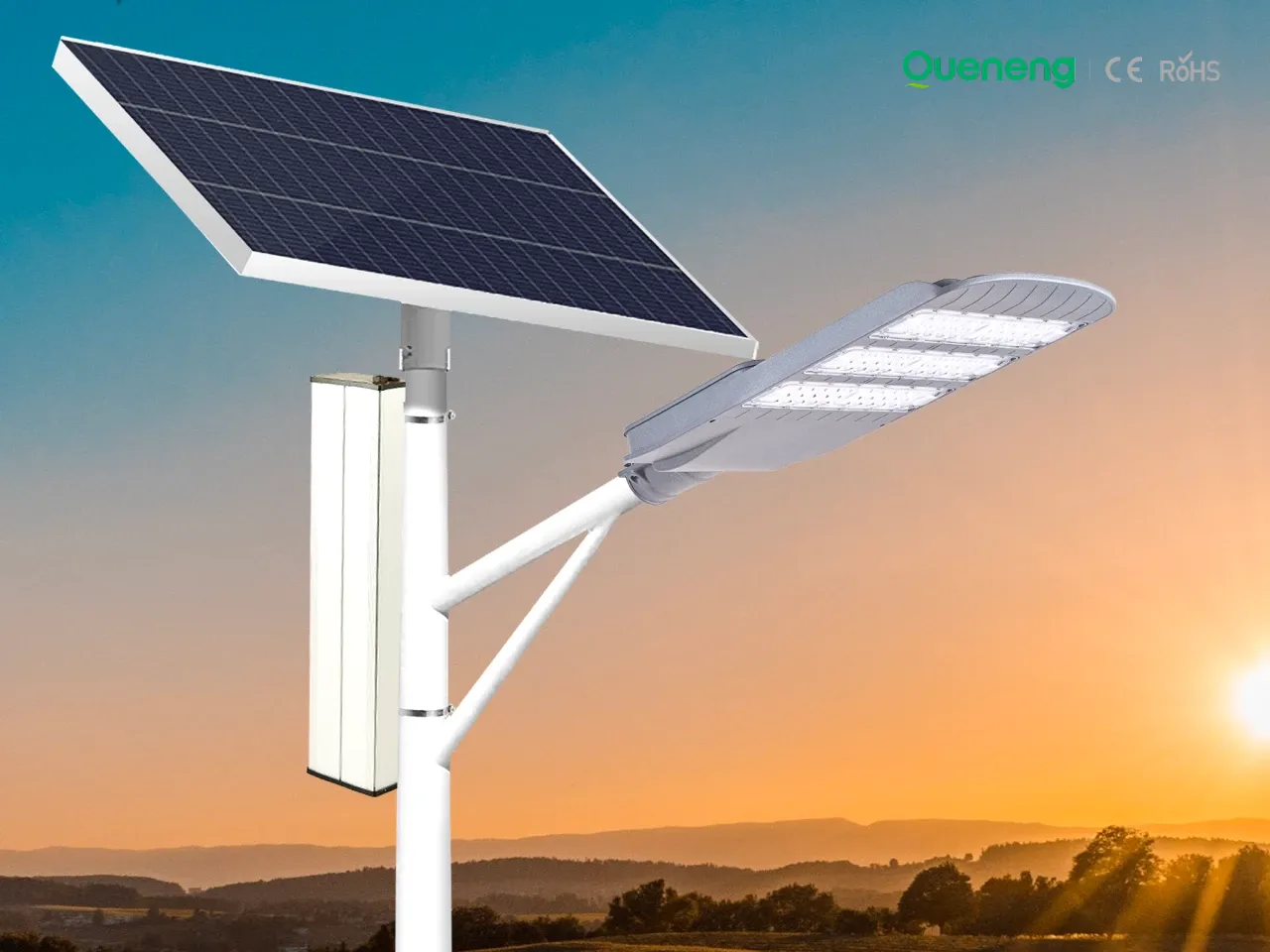

A comprehensive 2026 guide to solar street light pricing. Covers commercial installation costs, LiFePO₄ battery trends, smart IoT features, and a detailed ROI comparison against traditional grid lighting.

A comprehensive 2026 outlook on integrated solar street lights, featuring performance benchmarks like bifacial panels, LiFePO₄ batteries, and Smart City IoT integration for maximum ROI.
FAQ
Sustainability
What is the wind resistance rating of Queneng solar street lights?
Our solar street lights are rigorously tested and can withstand wind speeds of up to 120 km/h. For areas with particularly strong winds, we offer customized solutions to enhance wind resistance.
Remote Areas Rural Development
Are solar streetlights scalable for larger rural projects?
Yes, solar streetlights are highly scalable and can be customized to meet the requirements of large-scale rural electrification projects.
Distributors
What are the benefits of becoming a Queneng distributor?
As a Queneng distributor, you will gain access to high-quality, customizable solar lighting products, competitive pricing, marketing support, and exclusive distribution rights in some regions. We provide comprehensive training, technical support, and reliable logistics to help grow your business.
Battery Performance and Testing
What is the IEC standard cycle life test?
After the battery is discharged to 1.0V/support at 0.2C
1. Charge at 0.1C for 16 hours, then discharge at 0.2C for 2 hours and 30 minutes (one cycle)
2. Charge at 0.25C for 3 hours and 10 minutes, discharge at 0.25C for 2 hours and 20 minutes (2-48 cycles)
3. Charge at 0.25C for 3 hours and 10 minutes, then discharge to 1.0V at 0.25C (49th cycle)
4. Charge at 0.1C for 16 hours, leave for 1 hour, discharge at 0.2C to 1.0V (50th cycle). For nickel-metal hydride batteries, after repeating 1-4 for a total of 400 cycles, the 0.2C discharge time should be greater than 3 hours; for nickel-cadmium batteries, repeating 1-4 for a total of 500 cycles, the 0.2C discharge time should be greater than 3 hours.
Municipal and Public Infrastructure
Are your solar streetlights compliant with international standards?
Yes, our products meet international quality and safety standards, including ISO9001, CE, and RoHS certifications, ensuring reliability and performance.
Solar Street Light Lulin
Can Lulin solar street lights be used in areas with limited sunlight?
Yes, Lulin solar street lights are equipped with high-efficiency solar panels that are capable of charging the battery even in cloudy or low-light conditions. While the performance may vary based on the amount of sunlight received, the system is designed to store enough energy to ensure reliable performance during the night, even in regions with limited sunlight.

The Solar Streetlights of Luhao for Municipalities are designed to deliver reliable, energy-efficient, and cost-effective public lighting solutions. Equipped with advanced LED technology, durable lithium batteries, and high-efficiency solar panels, these streetlights provide consistent illumination for roads, parks, residential areas, and government projects.
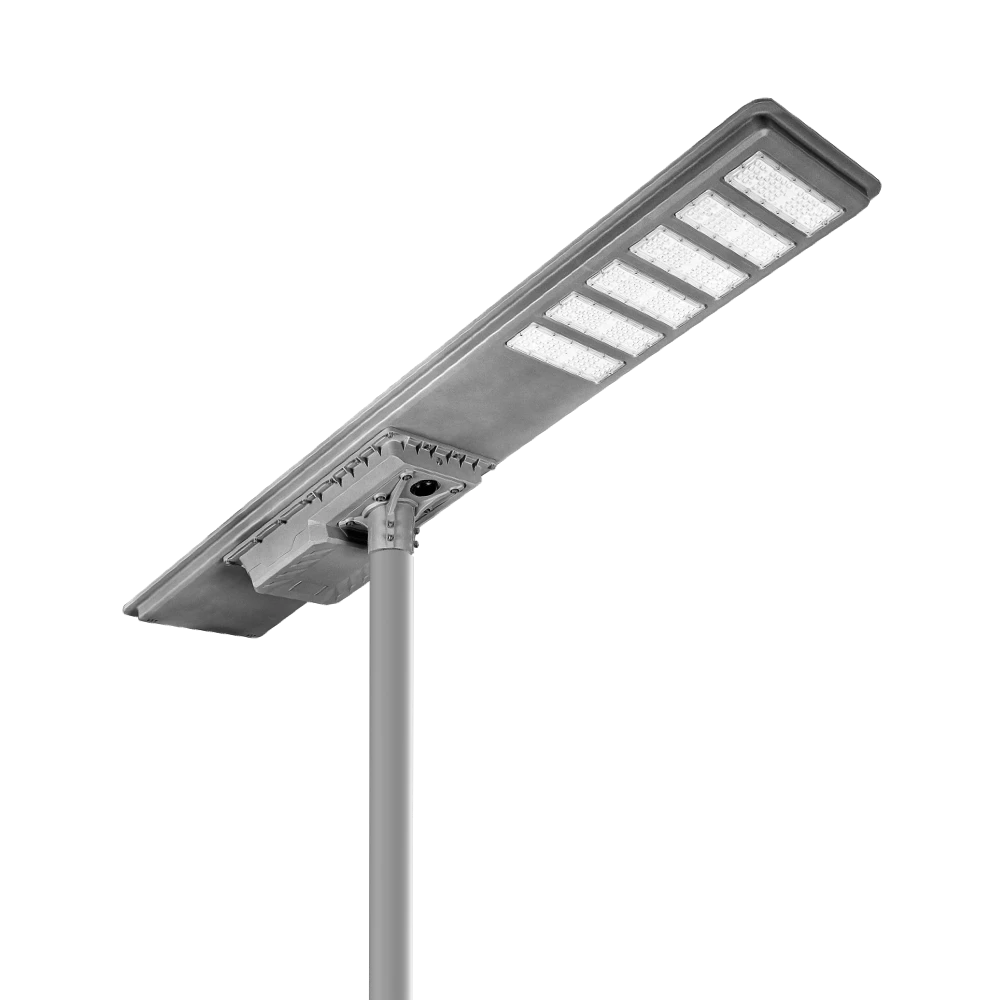
Queneng's Luqiu Innovative Solar Street Light offers energy-saving, durable outdoor lighting. This solar power street light provides a reliable and eco-friendly solution for illuminating your streets and pathways.
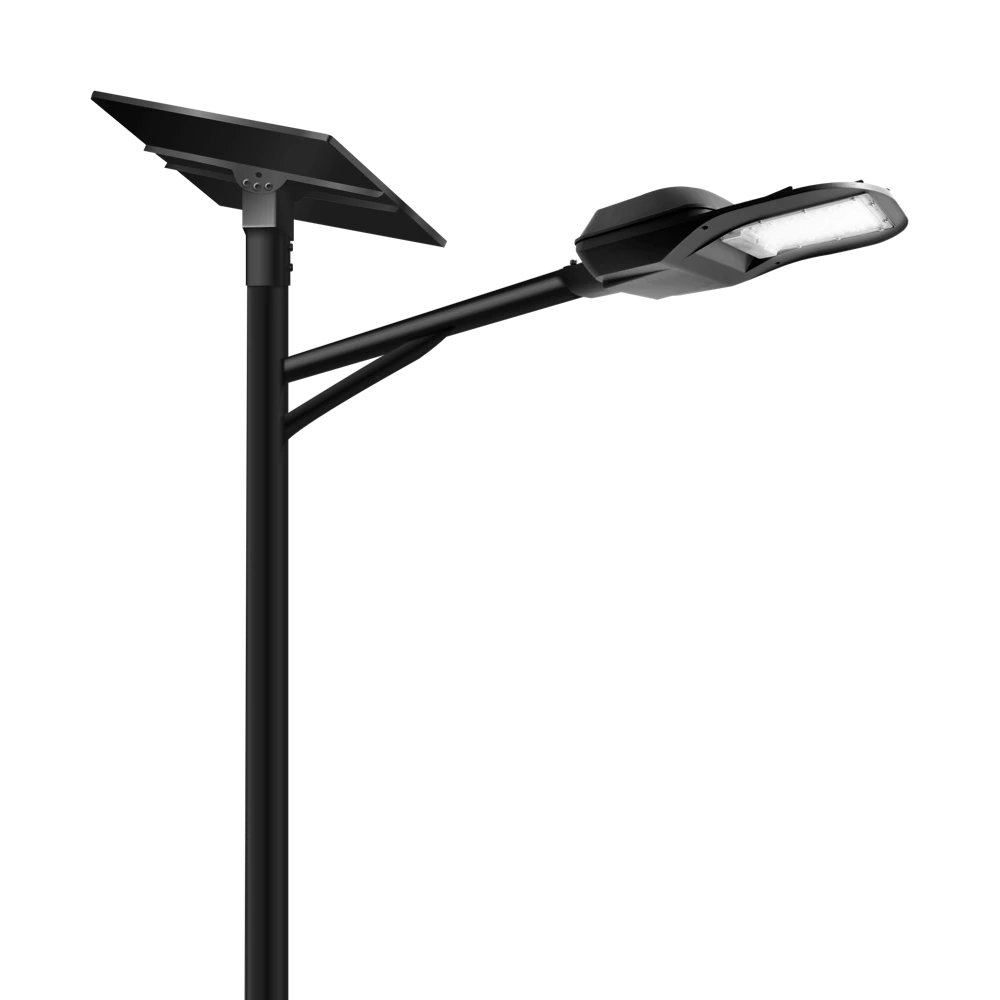

Lubai is an integrated solar street light designed for stable, long‑term outdoor lighting in off‑grid and weak‑grid areas. Combining a high‑efficiency solar panel, LiFePO₄ battery, and intelligent motion sensing, Lubai delivers reliable illumination with low maintenance and fast installation.
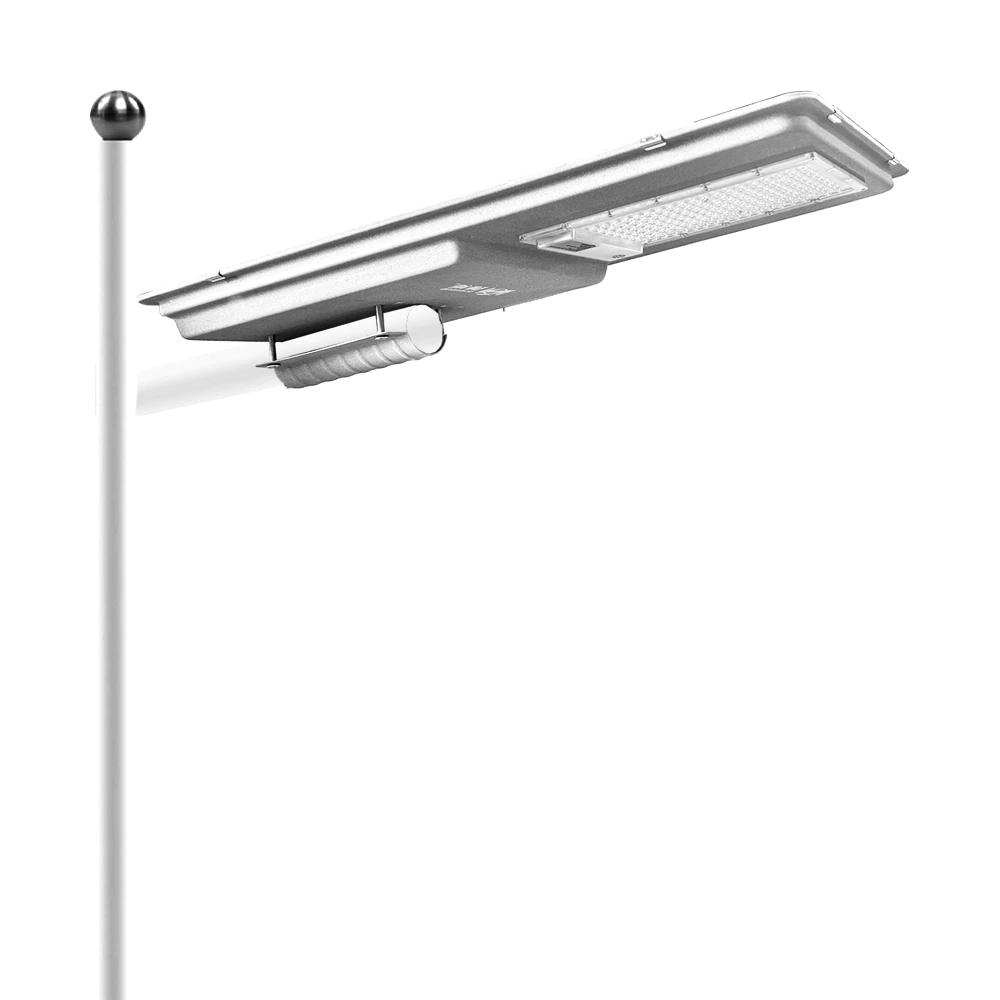
Queneng's Lufa high-efficiency solar LED street lights illuminate urban and commercial spaces brilliantly. These commercial solar LED street lights offer superior energy savings and reliable performance, making them an ideal sustainable lighting solution.
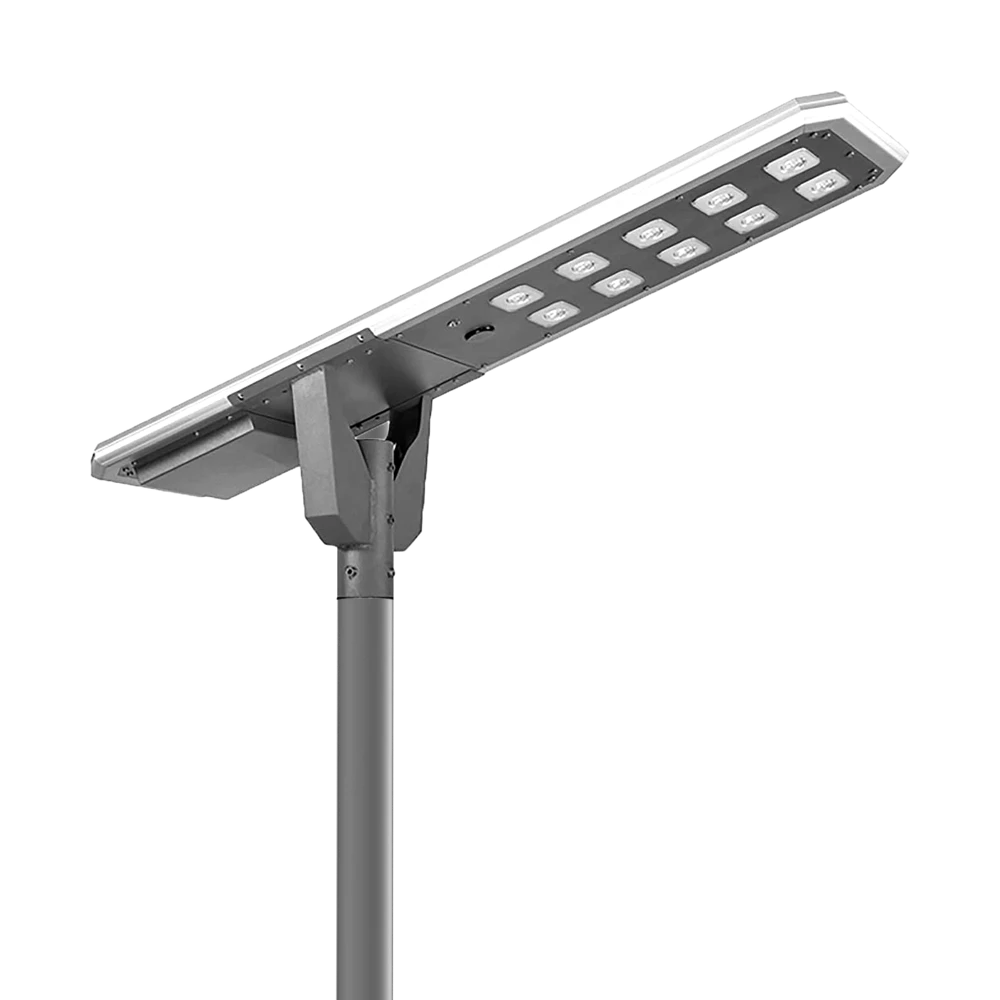
Illuminate your outdoor spaces with the Solar Street Light, a cutting-edge solution combining advanced solar technology and energy-saving LED lighting.
If you would like more information about Queneng solar lighting solutions, please send us a message by filling out the form below. Our professional team will get back to you within 24 hours!
Rest assured that your privacy is important to us, and all information provided will be handled with the utmost confidentiality.
Schedule a Meeting

Book a date and time that is convenient for you and conduct the session in advance.
Have more questions about our products or services?





















